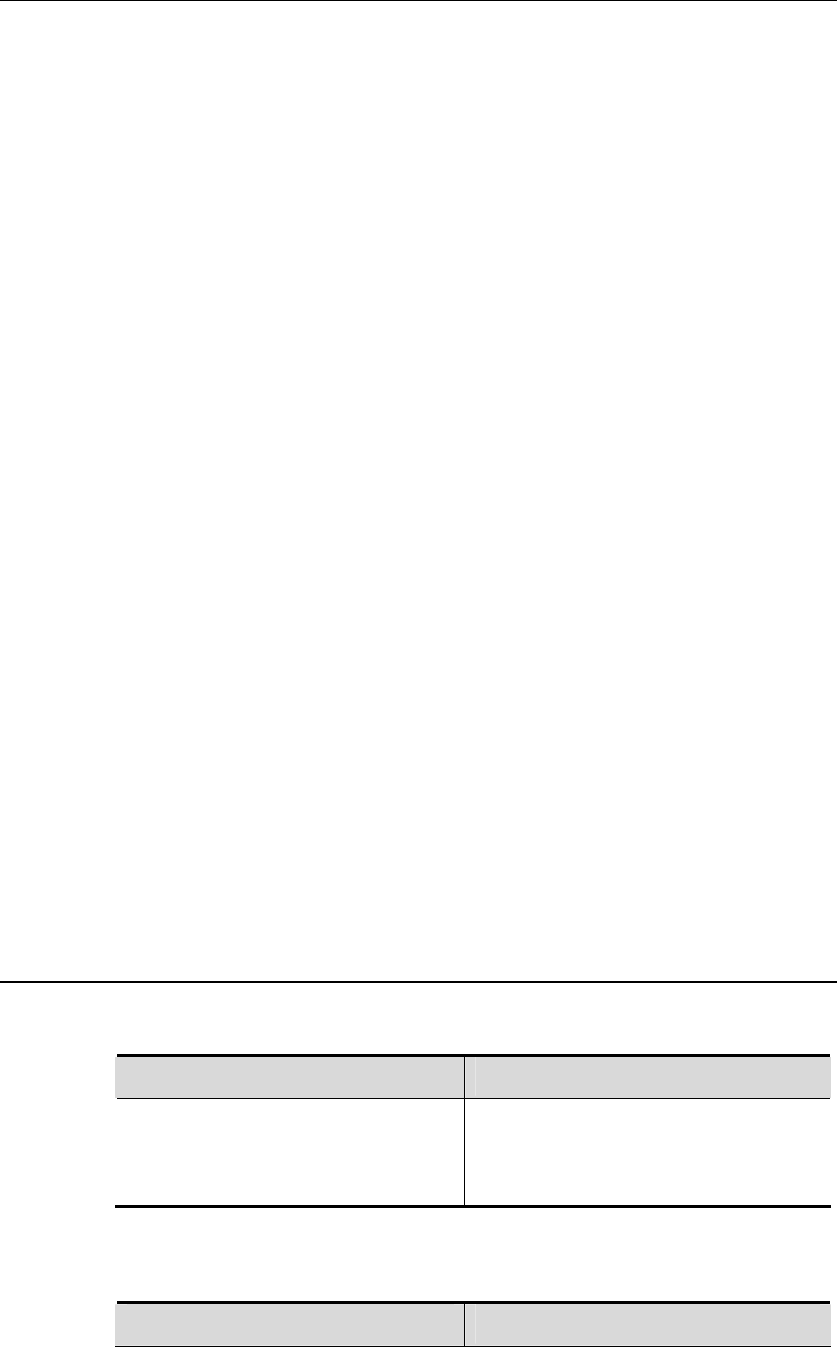
DES-7200 Configuration Guide Chapter 7 Policy-based Routing
Configuration
7-6
this command, no matter whether the VRF is the same as the one the interface
belongs to.
set ip nexthop: Set next hop of policy-based routing with the priority higher than
common route. This command takes precedence over the following command.
The IPv4 packets received on the interface that meet match rules will be firstly
forwarded to the next hop specified by the set ip nexthop command, no matter
whether the real routing of IPv4 packets in the routing table is the same as the
one specified by the policy-based routing.
set ip default nexthop: Set the policy-based routing with the priority higher than
default route but lower than common route. The IPv4 packets received on the
interface that meet match rules will be forwarded to the default next hop in case of
routing failure or default route.
When you configure the routing map, you can specify the match mode of a policy
as permit or deny, which is described as below:
Permit: Apply the corresponding set rule to the IPv4/v6 packets meeting the
match rules of the policy. If no match rule is met, the system applies the next
policy to packets.
Deny: If IPv4/v6 packets meet all match statements, the system performs
common routing rather than policy-based routing.
IPv4/IPv6 packets are matched by the priority of every policy of the routing map in
descending order. If the packets do not match any policy of the routing map, the
system performs common routing.
The next hop specified by the set ip nexthop command is used for forwarding
only when its tracking object is active.
To configure a policy-based routing, do the following steps:
7.3.1 Configuring route map
Step 1 Define an ACL.
Command Function
DES-7200(config)# ip access-list
{extended |
standard} {id | name}
Define an ACL as the matching rule of
IP packets.
Step 2 Define a route map, which consists of many policies in sequence order.
When a policy is matched, the system quits the execution of the route map.
Command Function


















